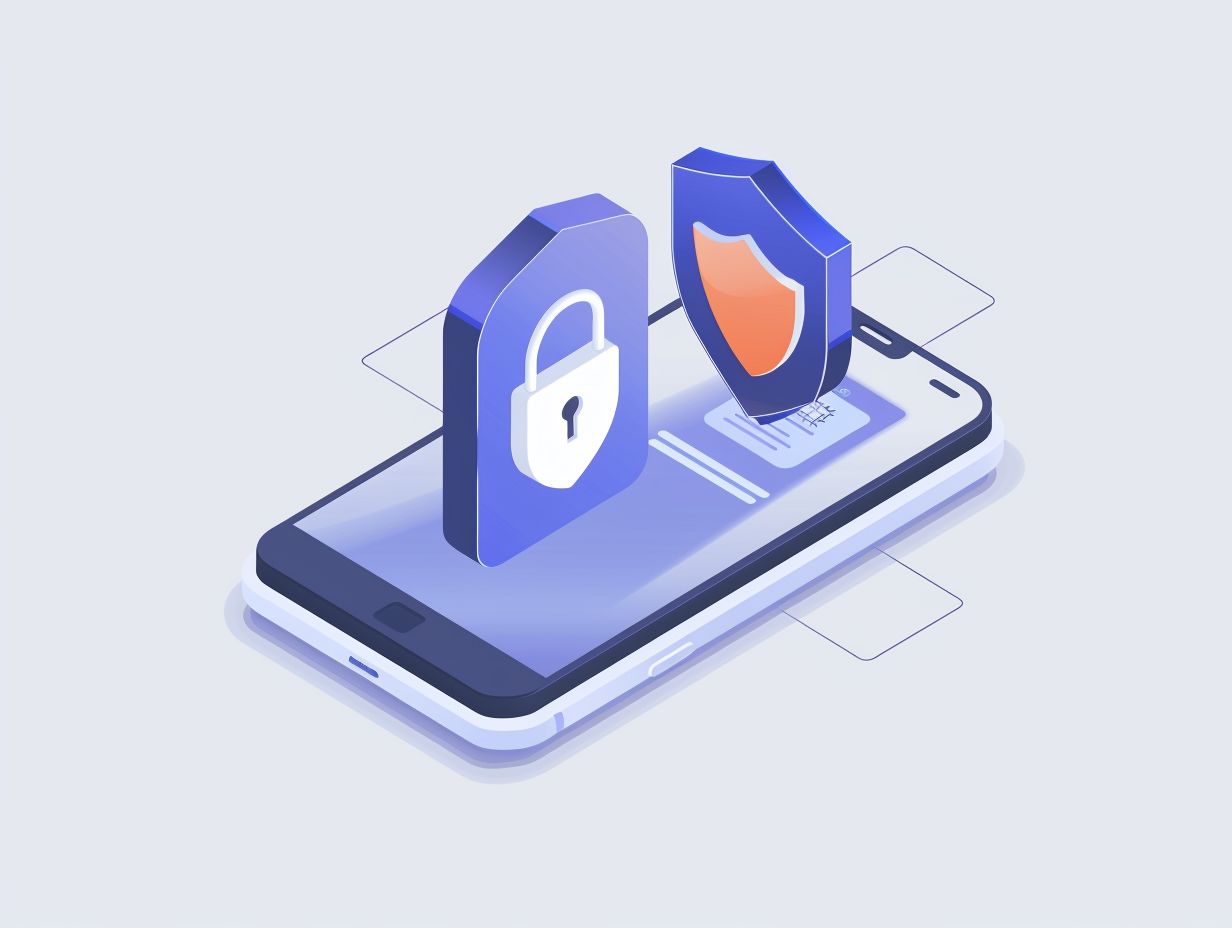In today’s digital age, the security of mobile applications is paramount. You need to consider enrolling in the EC-Council’s Certified Secure Programmer (ECSP) program. This program is designed to equip professionals like yourself with the essential skills and knowledge required to effectively secure mobile applications.
This overview will cover the program itself, the risks and vulnerabilities commonly associated with mobile applications, best practices for securing them, as well as the tools and technologies at your disposal. It will also provide valuable insights into how you can prepare for the ECSP certification exam and the numerous benefits that come with becoming a certified programmer in this specialized field.
Key Takeaways:

Overview of the Program and its Purpose
The ECSP .Net certification program is designed to equip you, as a developer, with the necessary skills to ensure application security throughout the software development life cycle. This comprehensive program aims to deepen your understanding of secure coding practices, vulnerability assessments, and risk management in software development.
By integrating secure practices from the initial stages of project conceptualization to deployment, you can mitigate potential security threats and safeguard sensitive data. The certification underscores the importance of proactively identifying and addressing security gaps, thereby enhancing the resilience of software applications against cyber threats. Consider becoming an EC-Council’s Certified Secure Programmer to secure cloud applications.
Emphasizing continuous learning and adaptation to evolving security landscapes, the ECSP .Net certification program enables you to build robust, secure, and resilient software solutions.
The Importance of Securing Mobile Applications
In today’s digital landscape, the importance of cybersecurity is paramount. With cyber threats on the rise, developers must possess robust security measures to safeguard user data and prevent unauthorized access to sensitive information.
Risks and Vulnerabilities of Mobile Applications
Mobile applications are vulnerable to a variety of risks and vulnerabilities, including SQL injection and other OWASP Top Ten Threats. Failure to address these security concerns can result in data breaches and compromise user privacy.
One of the most common risks found in mobile applications is SQL injection, where threat actors can exploit databases by inserting malicious code. Additionally, OWASP Top Ten Threats, a widely recognized compilation of the most critical web application security risks, present considerable challenges for mobile app security. These threats span from inadequate data storage to insufficient cryptography implementation. To mitigate these risks effectively, developers must incorporate secure coding practices, regularly conduct security assessments, and prioritize encryption protocols to protect sensitive information.
ECSP Certification and Mobile Application Security
The ECSP .Net certification program is instrumental in enhancing your skills through comprehensive training in security techniques and protocols. By obtaining this certification, developers can showcase their proficiency in securing mobile applications against cyber threats.
Skills and Knowledge Covered in the Program

The ECSP .Net program offers you a comprehensive range of skills and knowledge across various areas, including principles, programming, and secure coding practices. By participating in this program, you will gain valuable insights into industry best practices for creating resilient and secure applications that can withstand diverse cyber threats.
Through detailed modules on framework security, you will learn how to identify and address vulnerabilities in secure IoT applications. Additionally, the program delves extensively into C# programming, providing developers with the skills to write code securely and efficiently.
By emphasizing secure coding practices, ECSP .Net plays a critical role in ensuring that applications are developed with security as a foundational consideration, thereby enhancing the overall cybersecurity posture.
Best Practices for Securing Mobile Applications
Utilizing best practices for securing mobile applications is imperative in the current threat landscape. Measures such as encryption of data, secure authentication processes, and strict adherence to secure programming methodologies can greatly improve the overall security stance of mobile apps.
Common Techniques and Strategies
Common techniques and strategies for enhancing mobile application security include best practices, robust authentication mechanisms, and precise authorization protocols. By implementing these techniques, you can mitigate potential security risks.
Secure coding practices are essential for ensuring that the application s code is free from vulnerabilities. This involves following coding standards, using secure coding libraries, and regularly conducting code reviews.
Authentication methods such as biometric authentication, multi-factor authentication, and OAuth can help verify users’ identities securely. In terms of authorization, role-based access control (RBAC) and attribute-based access control (ABAC) are popular methods to ensure that users have appropriate permissions. Implementing encryption for data both at rest and in transit further enhances security against various cyber threats.
Tools and Technologies for Mobile Application Security
Incorporating practical experience and hands-on training can greatly enrich your comprehension of programming languages, frameworks, and other crucial tools and technologies for software development. These hands-on opportunities enable developers to effectively apply their theoretical knowledge to real-world situations.
Recommended Resources for Developers
As a developer looking to enhance your mobile application security skills, you can benefit from covering topics such as secure file handling, ASP.NET security practices, and prevention of buffer overflow vulnerabilities. These resources offer valuable insights and guidance for developers seeking to bolster their security knowledge.
For a comprehensive understanding of secure file handling, you can refer to the ‘OWASP Mobile Security Testing Guide,’ which provides best practices and tools to ensure the safety of files in mobile applications. In terms of ASP.NET security practices, the ‘Microsoft Docs‘ website offers detailed documentation on secure coding practices, authentication methods, and protection against common vulnerabilities. To prevent buffer overflow vulnerabilities, you can explore resources like the ‘SANS Institute‘ that provide courses and training on secure coding techniques and buffer overflow prevention strategies.
Preparing for the ECSP Certification Exam

Preparing for the ECSP certification exam necessitates a thorough grasp of essential principles, a solid familiarity with industry guidelines, and strict adherence to established standards. By concentrating on these pivotal areas, you will be able to adequately prepare for the certification exam and showcase your expertise in mobile application security.
Study Tips and Resources
Effective study tips and resources for the ECSP certification exam include honing mastering techniques and understanding the principles of. By leveraging these resources, you can enhance your knowledge and readiness for the certification assessment.
Developing strong skills in secure coding practices is crucial for ECSP exam preparation. You should explore various .NET Cryptography techniques, such as symmetric and asymmetric encryption, to grasp the core concepts thoroughly. Understanding encryption principles like confidentiality, integrity, and non-repudiation is essential.
To support your learning, you can utilize practice exams, online tutorials, and interactive labs specifically tailored for ECSP certification. Engaging in hands-on exercises and seeking guidance from experienced professionals can further solidify your understanding of secure development practices and encryption algorithms.
Benefits of Becoming an ECSP Certified Programmer
Attaining an ECSP certification positions you for a range of opportunities, such as improved career prospects, expertise in cybersecurity practices, and specialized knowledge in the field. Certified programmers possess the necessary skills and expertise to thrive in various roles within the cybersecurity sector.
Career Advancement and Opportunities
Individuals with expertise in cybersecurity techniques, proficiency in data security, and strong analytical skills have a myriad of career advancement opportunities in the cybersecurity sector. By showcasing competence in these areas, you can explore various roles and make significant contributions to the industry.
You can pursue roles such as cybersecurity analysts, secure software developers, or cybersecurity consultants. Given the rising demand for skilled professionals in secure programming, PHP security, and authentication, companies in diverse sectors are actively searching for cybersecurity experts to protect their digital assets. This offers a promising outlook for individuals interested in specializing in these domains and pursuing a rewarding career in cybersecurity.
Frequently Asked Questions
What is EC-Council’s Certified Secure Programmer?

EC-Council’s Certified Secure Programmer (ECSP) is a professional certification program that focuses on secure programming practices. It is designed to teach developers how to build secure applications and identify potential vulnerabilities.
What is the importance of securing mobile applications?
In today’s digital age, mobile applications are prevalent and used for various purposes. However, they also pose a significant risk to user data and privacy. Secure programming is crucial in ensuring that these applications are safe from cyber attacks and protect user information.
What does the ECSP course cover?
The ECSP course covers various topics, including secure coding practices, security fundamentals, threat modeling, and vulnerability assessment for mobile applications. It also provides hands-on training on securing both Android and iOS applications.
Who should take the EC-Council’s Certified Secure Programmer certification?
The ECSP certification is suitable for software developers, web application developers, mobile application developers, and anyone involved in the development of software and applications. It is also beneficial for IT professionals looking to enhance their knowledge and skills in secure programming.
Is there a prerequisite for taking the ECSP certification?
The ECSP certification does not have any specific prerequisites. However, it is recommended that candidates have basic knowledge of programming languages, web development, and mobile application development.
How can I prepare for the ECSP certification exam?
To prepare for the ECSP certification exam, you can enroll in an EC-Council accredited training program or study the official courseware. You can also access online resources, practice tests, and attend workshops to enhance your understanding of secure programming for mobile applications.
